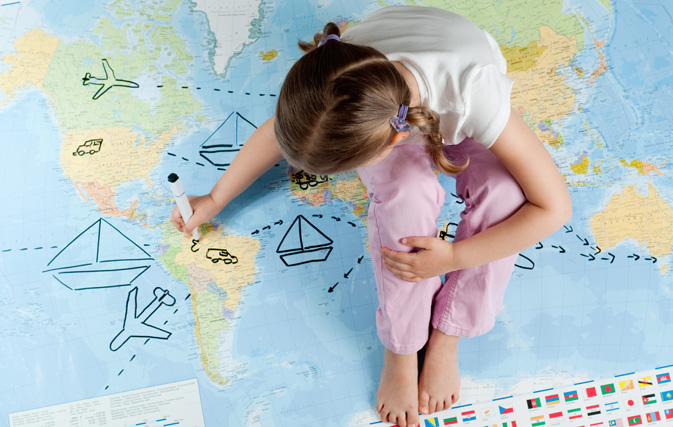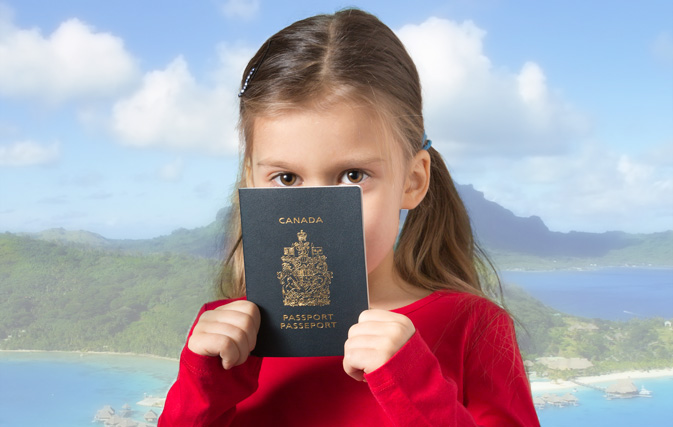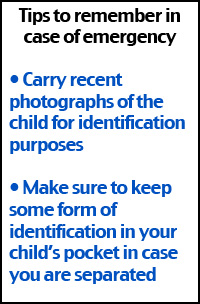
A lot of childhood memories are filled with images of faraway places. Whether it is for pleasure, adventure or visits, travelling with children can be a wonderful experience for the whole family.
For travel to be rewarding and memorable, there are a few things to take into consideration when going abroad with children.
Always carry the required documentation to assist you with Canadian and foreign customs and immigration. The documentation consists of proper identification for all children under the age of majority (18 or 19, depending on the province or territory of residence) travelling with you.

Travellers of any age are required to have their own Canadian passport, and it should be valid for at least six months prior to their return to Canada. For details, see Travel.gc.ca/passport. Keep in mind that passports for children under 16 are valid for 5 years only, so never assume that your child’s passport is valid for as long as yours is, which might be 10 years.
Supporting documents such as a birth certificate or Certificate of Canadian Citizenship should also be carried by parents while travelling.

If a child under the age of majority is travelling abroad alone, with one parent/guardian, with friends or relatives or with a group, he/she should carry a consent letter. The letter demonstrates that Canadian children have their parents or guardians’ permission to travel abroad when not accompanied. Some travellers will chose to have the consent letter notarized to further support its authenticity. A Consent Letter for Children Travelling Abroad, as well as Frequently Asked Questions and a Consent Letter Form are available at Travel.gc.ca/letter.
 For smooth sailing when travelling, parents who share custody of their children should carry copies of their divorce papers and legal custody documents. If one or both parents are deceased, a death certificate and custody documents should be carried by the legal guardian.
For smooth sailing when travelling, parents who share custody of their children should carry copies of their divorce papers and legal custody documents. If one or both parents are deceased, a death certificate and custody documents should be carried by the legal guardian.
It is important be aware that anyone who is under the age of majority travelling alone must have proof of citizenship. It is also strongly recommended that children carry a letter from both parents (if applicable) that authorizes the person meeting them to take care of them. The letter should include the length of the stay and the addresses and telephone numbers of the parents.
Let your children know that Canada Border Services Agency officers watch for missing children and may ask detailed questions about the children travelling with you. Tell them that they might themselves be asked questions by a border services officer and that they shouldn’t be afraid to answer them.
In the event that officials are not satisfied with the information provided, they may refer the travellers for further examination to confirm status and custody. Confirming custody may involve conducting database checks to ensure the child has not been reported missing or calling the child’s parent(s) to determine authorization to travel with the child.
For more travel tips on travelling with children consult the safe-travel publication Travelling with Children on the Travel.gc.ca website.
Happy travels from the Department of Foreign Affairs, Trade and Development Canada!
